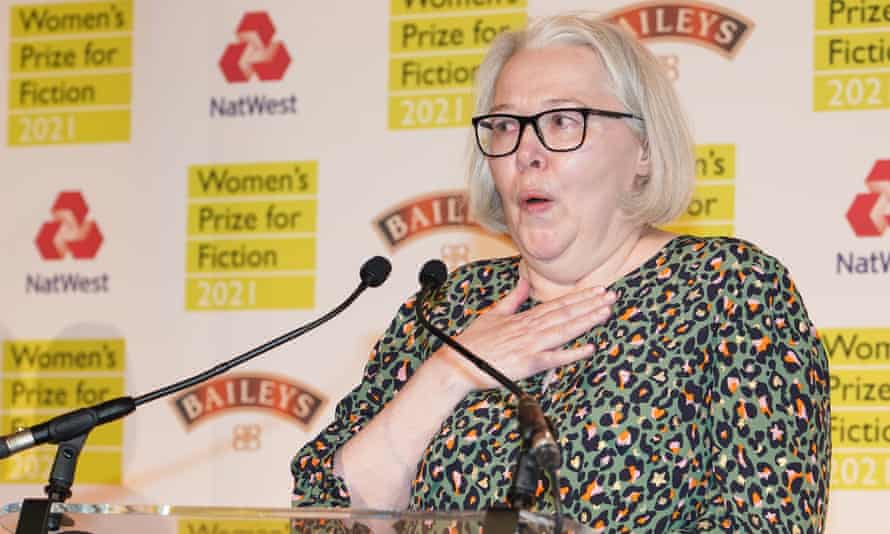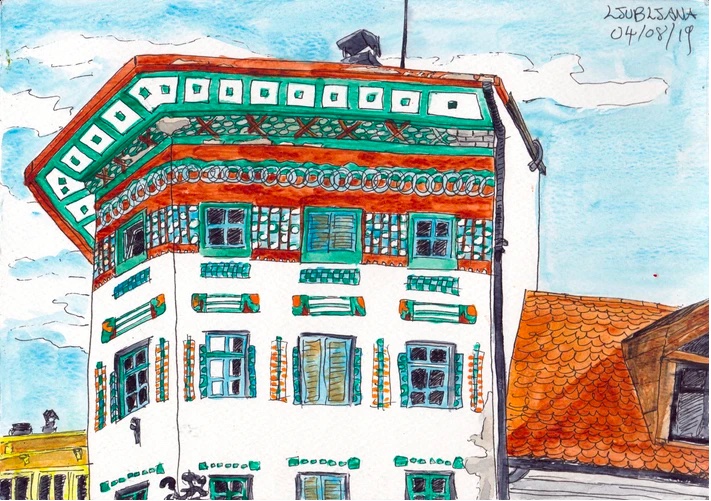Susanna Clarke’s topic is magic and her personal story is a magical one too. Seventeen years after her bestselling, genre-busting doorstopper Jonathan Unusual & Mr Norrell about two rivalrous magicians was printed to very large acclaim (Neil Gaiman declared it “unquestionably” the best English fantasy novel of the final 70 years) she has received the Ladies’s prize for her second novel Piranesi.
An otherworldly research of solitude, celebrating on a regular basis consolations and the consolation of nature, Piranesi appeared with uncanny timing simply as we have been starting to emerge from a interval of all too actual isolation.
“It’s simply fabulous. I haven’t processed it in any respect,” the writer says from a lodge room in London, after the ceremony (one of many first post-lockdown publishing bashes) the earlier night. However not for Clarke the standard bleary-eyed morning-after interview. “We arrived again on the lodge and we simply drank camomile tea and flopped.”
As she defined in a tearful acceptance speech, this was a e-book she thought she would by no means be capable of write. Six months after the publication of Jonathan Unusual in 2004, when she was 44, she handed out at a cocktail party and hasn’t been nicely since. “Having written a couple of lady with a Nineteenth-century sickness I then appeared to fall prey to a Nineteenth-century sickness myself,” she says. “Don’t write about fairies. They don’t prefer it.”
She was finally identified with continual fatigue syndrome, which at its worst left her housebound and depressed. “Typically I’d really feel that life stretched forward however it was form of clean and that was fairly scary.”
An invite on to the set of the BBC miniseries for Jonathan Unusual in 2015 gave her the enhance to begin writing once more. “I’d actually ceased to consider myself as a author,” she says. “All of it appeared so way back and much away, like one thing that occurred to any person else.”
Piranesi isn’t the much-longed-for sequel; though slimmer and quieter than Jonathan Unusual, it’s equally ingenious, immersive and onerous to pin down. The title remembers the 18th-century Italian artist Giovanni Battista Piranesi, whose Escher-like etchings of Imaginary Prisons, with their formal magnificence and inconceivable structure, areas directly cavernous and claustrophobic, conjure up the novel’s unsettling sense of recognisable and unreal worlds colliding.
If Jonathan Unusual was a riotous assembly of Austen and Dickens, then Piranesi’s pole stars are Jorge Luis Borges and CS Lewis. “I discovered Lewis at a really impressionable age after which he form of organised the within of my head,” she says. “And that’s simply the way in which it has been ever since.”
Our narrator Piranesi lives in an enormous home that accommodates an ocean. He spends his days wandering its limitless halls, communing with the birds and writing his diaries (a form of prototype pandemic journal). He isn’t sad. In reality, he could also be an advert for contemporary mindfulness, a form of radiant yogi with fishbones in his hair. “The World feels Full and Complete, and I, its Baby, match into it seamlessly.” The reader, like Piranesi, turns into a charmed captive of Clarke’s deliquescent, dream-like world.

Then there may be that different home with many rooms: Christian symbolism runs alongside Borgesian labyrinths and numerous nods to Narnia, just like the statues lining the halls. Clarke is the daughter of a Methodist minister, in any case.
Whereas the writer says she had no intention of writing a Lewis-style Christian allegory, Piranesi clearly invitations interpretation. Is it a novel about writing a novel? A meditation on artwork? A metaphor for continual sickness? A cautionary story of colonisation? Who’s the mysterious “Different”? Who’s Piranesi? Who’re we?
Naturally, Clarke resists explanations, however she’s going to say that with the character of Piranesi she got down to create an alternative choice to the trendy psyche, “the place we really feel like we’re form of locked in our consciousness, inside our heads and the world is one thing alien and on the market”, she explains. “I wished to explain somebody who is sort of in communion along with his world on a regular basis.”
The seed of the novel was sown a few years in the past, after Clarke took a night class within the tales of Borges, “fairly an eccentric group of individuals, someplace in east London”, when she was in her twenties and dealing in publishing. She wrote a short define – “5, six, seven pages, typewritten” – that will change into Piranesi. “I actually had no thought the right way to write this story,” she says now. “So I simply stored it with me and now and again I’d have a look at it.”
When she fell in poor health, of the various unfinished tasks on her laptop computer, Piranesi was the one which felt “most manageable” and, not like Jonathan Unusual, required little analysis (she learn a e-book on clouds). If her sickness feeds into the novel, it’s in constructive methods, she says. “It was the rising sense that simply since you are bodily confined you needn’t be dwelling an impoverished life.”
She tells the story of her aunt, who had a coronary heart situation that meant she spent the final 10 to fifteen years of her life unable to face up for worry she could die. Clarke was given a tiny diary her aunt stored during which she would element minute modifications within the tree outdoors her bed room window. “Simply since you are in a single room it doesn’t imply you’re essentially disconnected from the world,” she says. “That was one thing I feel that did feed into Piranesi.”
As typically in her life, she discovered herself “at an angle to everybody else”, throughout lockdown, when as an alternative of closing down “the world simply opened up”, she says. “Out of the blue all my associates have been on my pc and I didn’t have to depart my couch.”
Was she struck by the well timed resonance of her novel? “Individuals have discovered echoes of lockdown in various books,” she says. “It says one thing about literature.” As for her, after feeling very offended for a really very long time, she has made “some form of peace” along with her situation.







